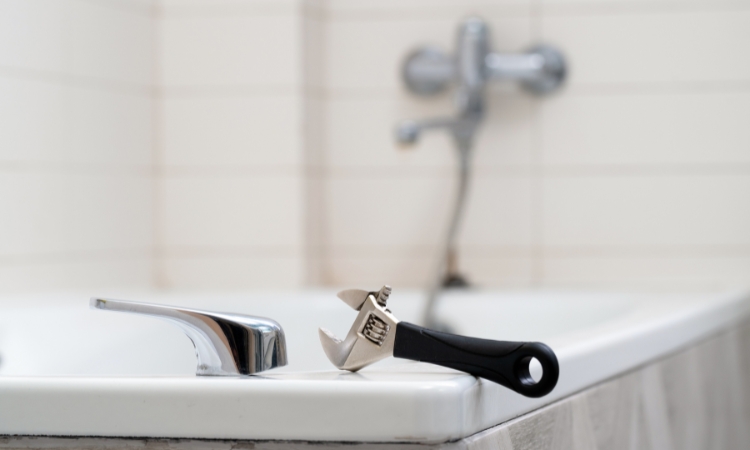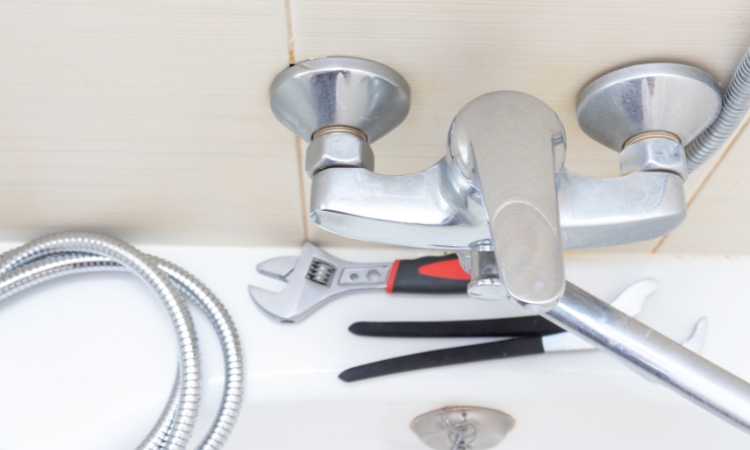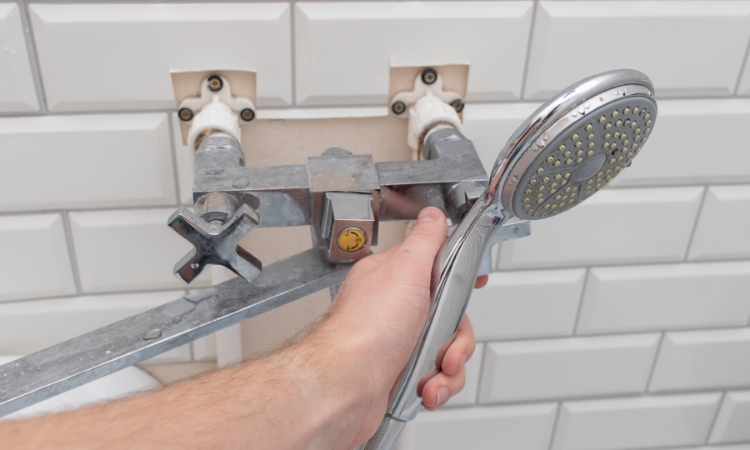Shower tap leaking can be an annoying and wasteful problem, leading to water wastage and potential damage to your bathroom. Understanding the common causes behind shower tap leaks and knowing how to address them can save you time, money, and hassle. In this article, we’ll explore seven common reasons why shower taps leak and provide practical solutions to fix them.
Reasons for Shower Tap Leaking Singapore
Homeowners must explore the common causes of shower tap leaking and address the issue on time; otherwise, it will result in a worse outcome. A leaking shower tap is a continuous headache, and you cannot let it go unnoticed. PS Home Maintenance Singapore explains the seven most common causes of shower faucet leaks.
Worn-out Washers
One of the primary culprits behind a leaking shower tap is a worn-out washer. Over time, the constant friction and pressure from turning the tap on and off can cause the washer to deteriorate, leading to leaks around the base of the tap.
Solution: To fix this issue, you’ll need to replace the washer. Please turn off the water supply to the tap, disassemble the tap handle, remove the old washer, and replace it with a new one of the same size and type. Reassemble the tap, turn the water back on, and check for leaks.
Loose Connections
Sometimes, leaks can occur due to loose connections within the tap assembly. This can happen if the fittings become worn or if they weren’t properly tightened during installation.
Solution:
- Inspect the connections between the tap components, including the handle, spout, and valve.
- Use a wrench or pliers to tighten any loose fittings carefully.
- Be careful not to overtighten, as this can cause damage.
Damaged O-Rings
O-rings are rubber seals that prevent water from leaking out of the tap. Over time, these O-rings can wear out, become brittle, or develop cracks, leading to leaks.
Solution: To fix a leaking tap due to damaged O-rings, turn off the water supply, disassemble the tap, and locate the O-rings. Remove the old O-rings and replace them with new ones of the correct size. Reassemble the tap and test for leaks.

Corroded Valve Seat
The valve seat is the part of the tap where the spout and the handle meet. If the valve seat becomes corroded or worn, it can cause leaks around the spout.
Solution: To address a leaking tap caused by a corroded valve seat, you’ll need to remove the valve seat using a valve seat wrench. Once removed, inspect the seat for damage or corrosion. If it’s damaged, replace it with a new valve seat. Reassemble the tap and check for leaks.
High Water Pressure
Excessive water pressure can put a strain on tap components, leading to shower tap leaking over time. High water pressure is a common issue in many households and can contribute to various plumbing problems, including leaky taps.
Solution: Install a pressure-reducing valve (PRV) to regulate the water pressure in your plumbing system. A licensed plumber can assess your water pressure and install a PRV if necessary, helping to prevent leaks and prolong the lifespan of your taps.
Mineral Buildup
Mineral deposits, such as limescale, can accumulate inside tap components, causing them to malfunction and leak. This buildup is common in areas with hard water.
Solution: To address mineral buildup in your shower tap, soak the affected components in a solution of vinegar and water to dissolve the deposits. Use a brush or toothpick to remove any stubborn buildup. Regularly cleaning your taps can help prevent mineral-related leaks.

Faulty Cartridge or Valve
Modern taps often use cartridges or valves to control water flow. If these components are faulty or damaged, they can cause leaks or dripping from the tap.
Solution: Depending on the type of tap, you may need to replace the cartridge or valve. Consult the manufacturer’s instructions or seek professional help to identify the correct replacement part. Once replaced, test the tap to ensure the leak is resolved.
Conclusion
Dealing with a shower tap leaking can be frustrating, but identifying the root cause of the leak is the first step toward finding a solution. By considering factors such as worn-out components, improper installation, plumbing issues, external factors, water quality, and DIY repair mistakes, you can address leaks effectively and prevent future problems. Regular maintenance, timely repairs, and professional assistance when needed are key to keeping your shower taps in good working condition and avoiding water wastage and damage.
Frequently Asked Questions
Q1: How bad is a leaky shower faucet?
It is crucial to repair the leak promptly upon detection to minimize potential damage. A leaking shower valve concealed within the wall poses hazards, potentially leading to issues such as rot, mould growth, and structural damage.
Q2: Are shower leaks easy to fix?
A leaking shower can disrupt your morning routine, but fortunately, it often has a straightforward solution. By conducting some detective work and identifying the issue, you can resolve it yourself. The DIY approach will reduce the need for multiple trips to the hardware store or the necessity of hiring a professional.
Q3: How long should a shower faucet drip?
Typically, a faucet or shower head may continue to drip for 3 to 5 minutes after being turned off, which is considered normal. If the dripping stops within this timeframe, there’s usually no cause for concern. However, if your shower head continues to drip beyond the 5-minute mark, it might indicate that the washers need to be replaced.
